These Super Bowl Halftime Show Secrets May Change The Way You Watch This Year’s Performance
There are two things that people who aren't sports fans have to look forward to during the Super Bowl: seven-layer dip and the halftime show. The Super Bowl has become the platform for some of the best performances of the year. While the event's coordinators pretty much have it down to a science, things have always run as smoothly as you may think. You remember Janet Jackson's wardrobe malfunction, but did you know that it helped save another failure of the night? Equally surprising is that only one artist has actually been paid to perform during the show. Keep reading for more on these secrets and others.
Secrecy Is A HUGE Deal
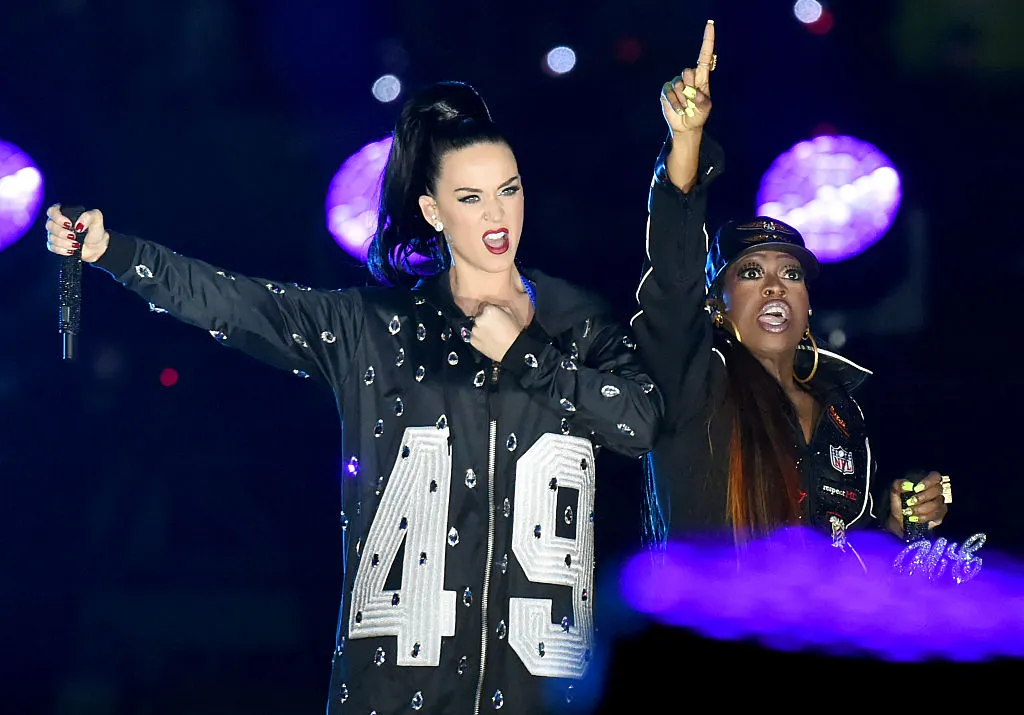
Super Bowl producers are hugely concerned with the element of surprise. Micah Kosco, a high school marching band member at the Super Bowl XLIX performance, told Cracked that anyone who even walked by a rehearsal would have to sign a Nondisclosure Agreement.
That fact is far more hilarious considering that his rehearsals took place at, "a high school in the middle of nowhere." Another participant, Chris Sopko, said that his rehearsals required everyone to turn in their cellphones. They even kept Missy Elliot a secret from band members until the day before the big show.
Did You See Green Orbs During Katy Perry at Super Bowl XLIX?
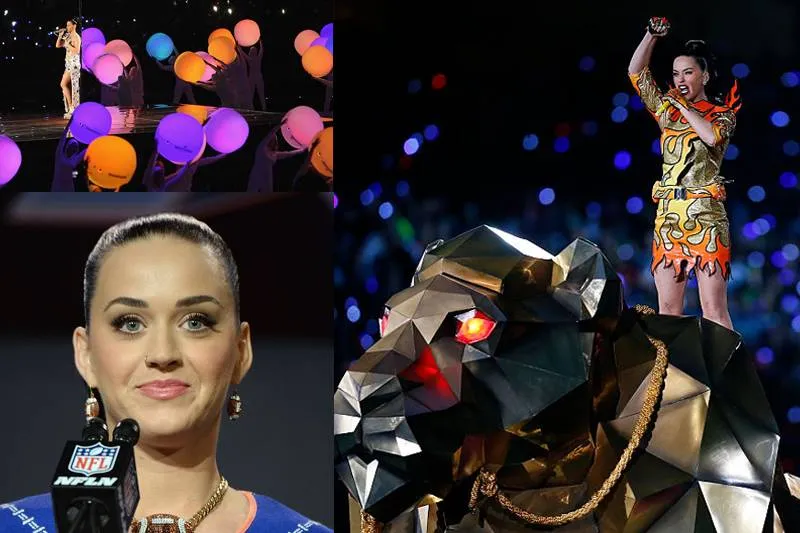
During Katy Perry's performance at Super Bowl XLIX, she performed on a giant, metal lion with glowing red eyes. Her costume was covered in flames, which was mimicked in the giant field of bright red and yellow orbs. However, if you look a little closer, you may notice that two of those orbs are green.
A technical glitch caused this mistake. One of the kids who was holding the orbs, Micah Kosco, told Cracked that he had the misfortune of holding the green one. He proceeded to whack the orb on the ground in hopes of fixing the error, which didn't work out too well.
Katy Perry's Backup Dancing Sharks Were Fired Last Minute
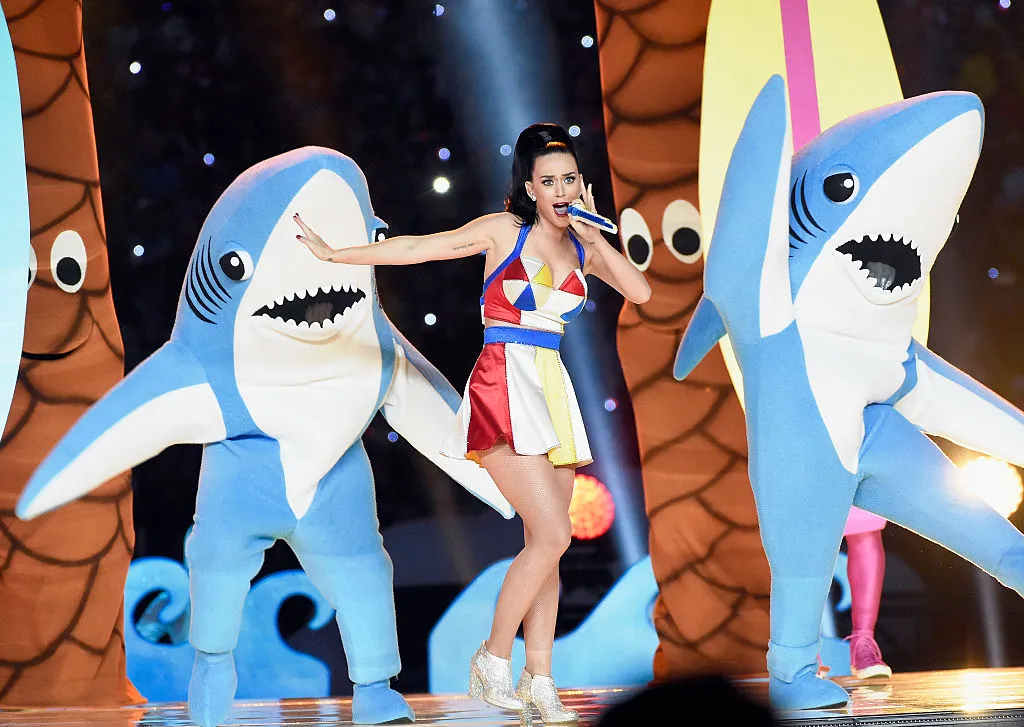
After Katy Perry's performance with the dancing sharks at Super Bowl XLIX, the internet erupted with left-shark-memes. That's because the shark dancers were out of sync while dancing, and it appeared to be the shark to the left's fault.
Teenage marching band member Micah Kosco told Cracked that the reason these sharks seem ill-rehearsed is that they only had two days to practice. Apparently, the initial backup shark dancers were fired last minute, so Katy Perry had two of her backup dancers replace them. Hopefully being made fun of on the internet didn't harm that dancer's position with Katy Perry.
The Show Wreaks Havoc On The Field
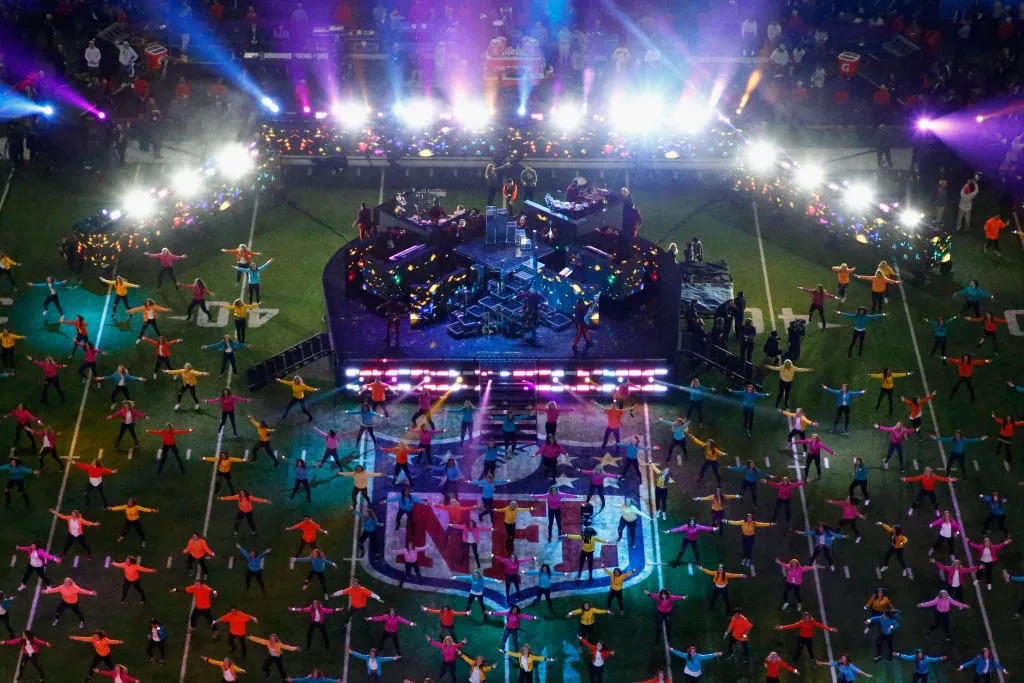
ESPN reports that any time a Super Bowl is played on natural grass, the field has to be replaced. That means unraveling more than 500 strips of turf, each weighing in at 2,500 pounds! Farmer Mark Paluch told ESPN that the cheerleaders do more harm to the grass than the players do.
However, the real culprit is the artists at the halftime show. One of the most lawn-wrecking performances was at Super Bowl XXII in San Diego. Tractors pulled 88 baby grand pianos onto the lawn, after which crew members had to search the grass for loose screws, bolts, or shards of the pianos.
One Of The Camera's Went Bust During Beyonce's Performance
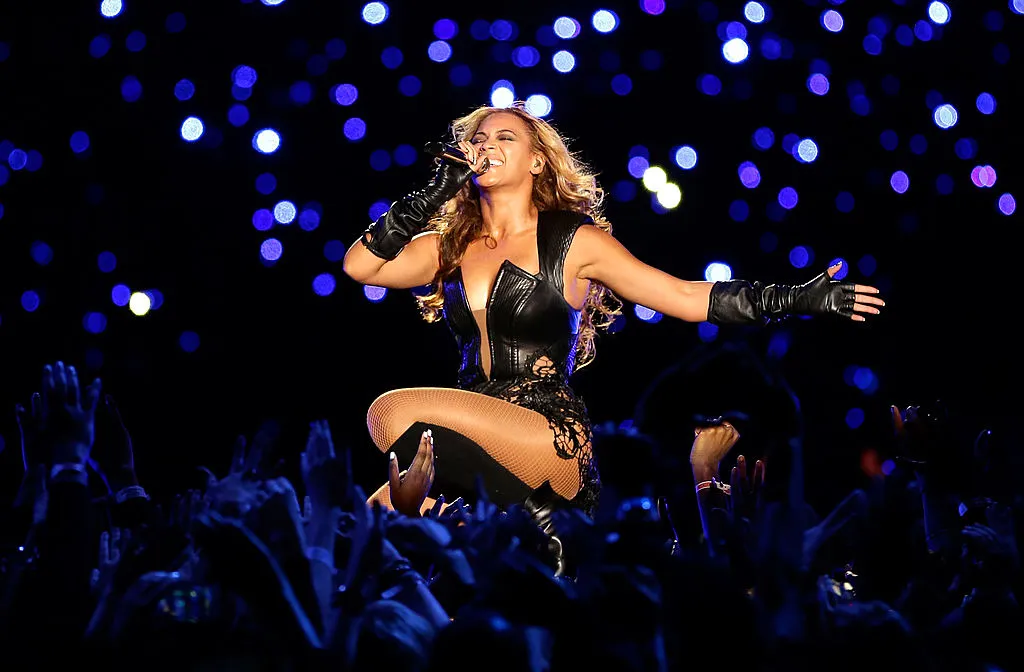
The show director of the Super Bowl XLVII halftime show in New Orleans told Dujour a few behind-the-scenes details. The first was that the steady cam "literally broke in half" midway through Beyonce's performance.
Having a camera malfunction during one of the largest star's performances at one of the largest events of the year is the last thing a show director wants to hear. While the missing shots were difficult to make up for, the talented team pulled it off without anyone noticing.
The Who Nearly Experienced A Camera Catastrophe
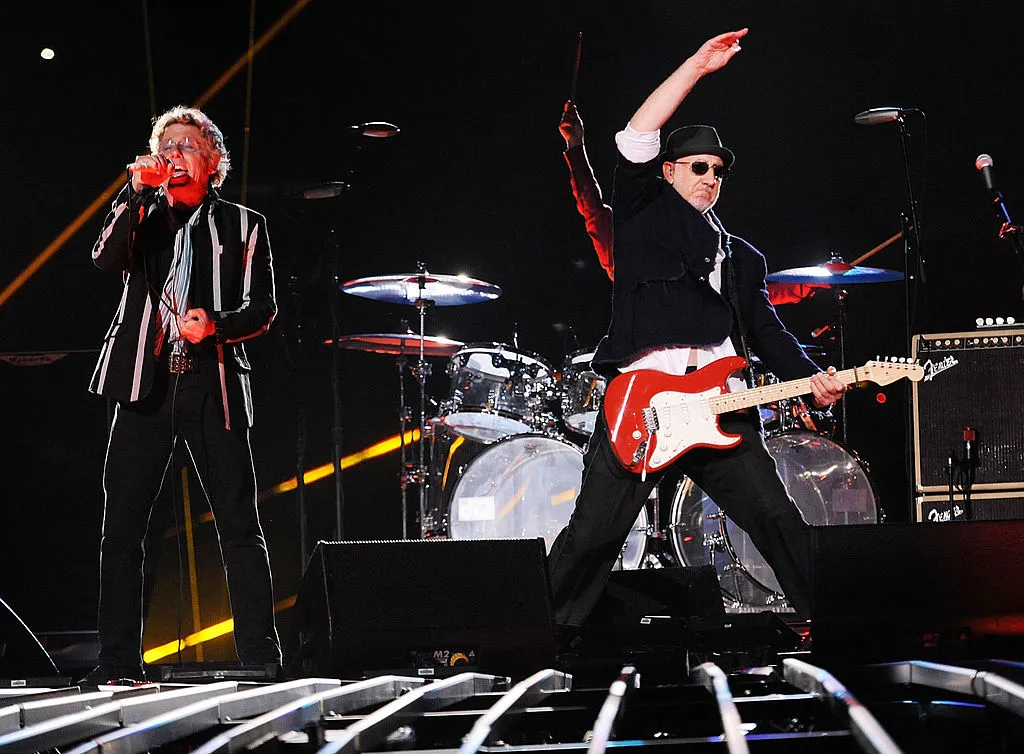
Show director Hamish Hamilton told Dujour that the camera mishap during Beyonce's performance wasn't his first issue of that kind during a Super Bowl. He said that while working with The Who, not one but TWO cameras went out a mere 15 seconds before they went on air.
Of all the times a technical issue could occur, the moment before the live airing starts is probably the worst. By a miraculous twist of fate, both cameras came back up one second before they aired-- talk about a stressful moment on the job.
The Entire Show Is Built In Minutes
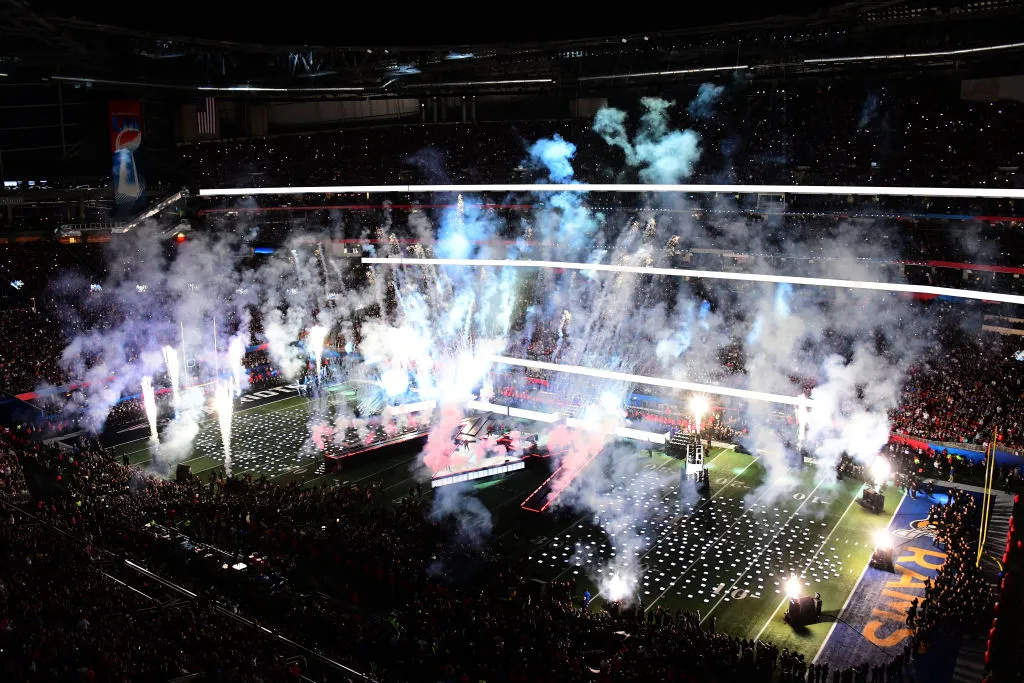
Imagine turning a field full of professional football players into a stage for one of the most extravagant performances of the year in just six minutes. Super Bowl sound engineer Patrick Baltzell told The Verge that there are only six minutes between the end of the first half to the start of the halftime show, during which the entire show has to be built on the field.
In order to pull this off, there needs to be a ton of planning. The show creators have to know ahead of time where to put the broadcast trucks, speaker carts, cables, and wires.
A Lot Of The Sound Is Pre-Recorded
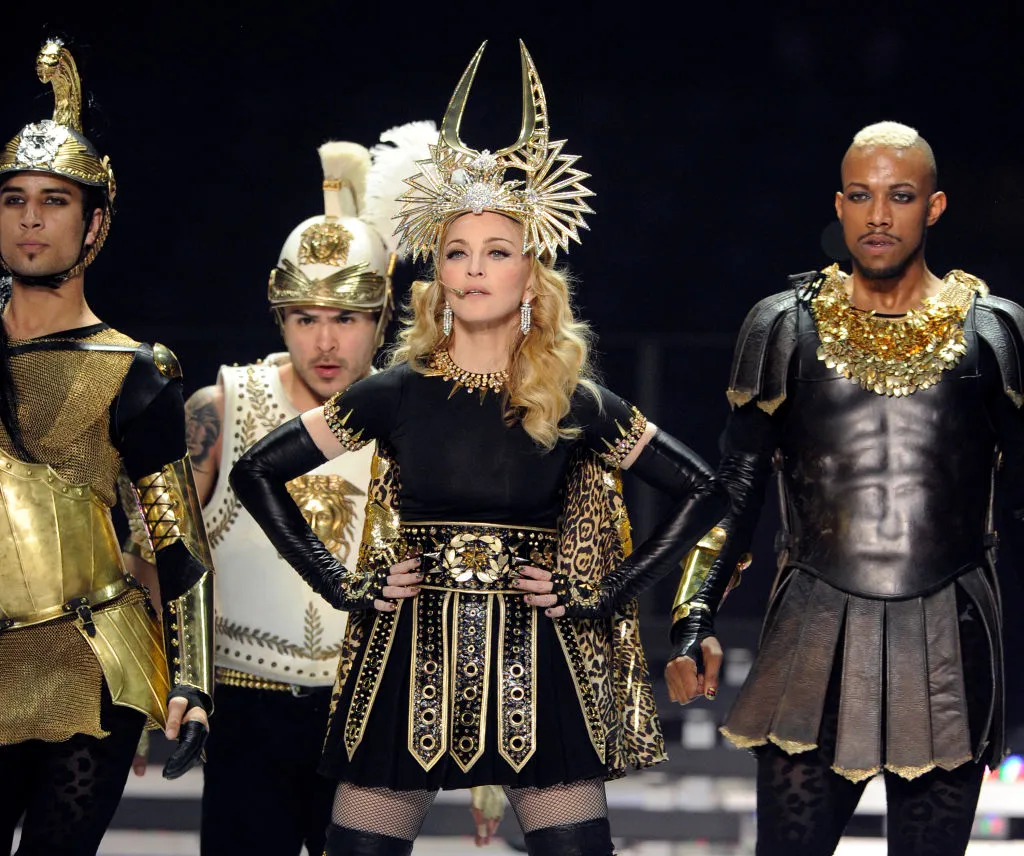
Sound engineer Patrick Baltzell told The Verge that at the Super Bowl, background vocals are always pre-recorded, and most of the time, so is the band. He said that this was the case during Madonna's performance, during which only her vocals were live.
The same thing went for Katy Perry's performance, with the exception of her flying segments. While the lead vocals are usually live, they have a pre-recorded track for those too, just in case.
Jewel Couldn't Hear Her Lip-Syncing Cue
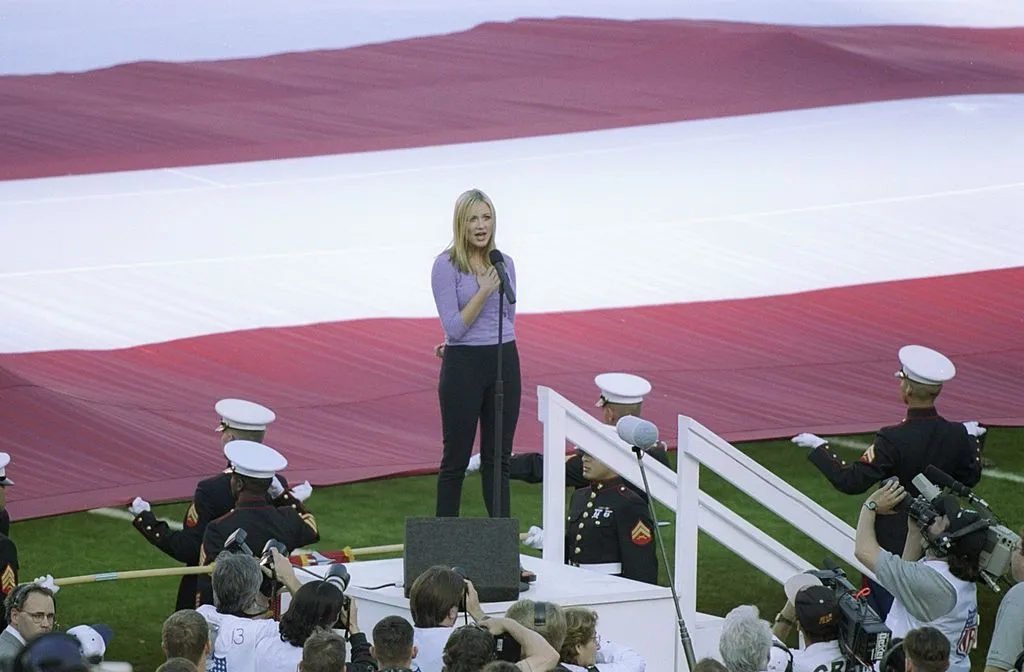
Back in 1998, 24-year-old Jewel was selected to ring in Super Bowl XXXII by singing the National Anthem. The honor terrified the new star, according to sound engineer Patrick Baltzell. Unfortunately, this was also Patrick's first time working on the Super Bowl.
She insisted that she didn't want to sing live, but Patrick knew that the screaming fans would interrupt her ability to hear them count her down in the speaker wedges. Sure enough, she missed the first word, which did not go unnoticed.
Springsteen Had To Be All Live
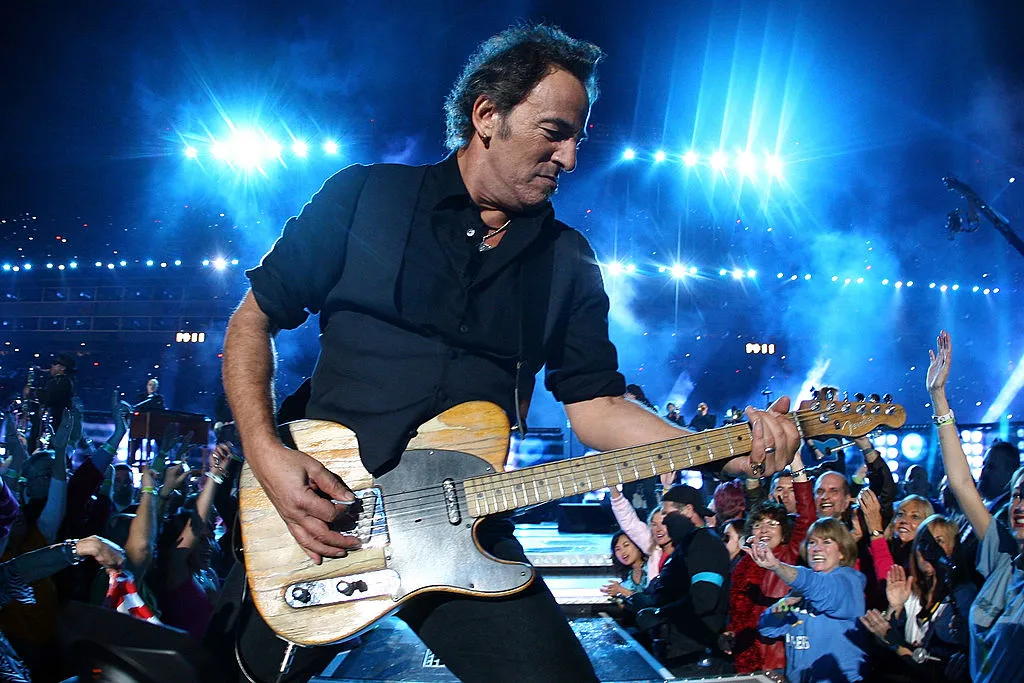
Quite the opposite of Jewel, Bruce Springsteen had to perform everything live at the Super Bowl XLII halftime show. That's because, according to sound engineer Patrick Baltzell, he always changes the way he sings his songs.
He also played his guitar and saxophone solos live. When it comes to instrument solos, they often fall in the same category as lead vocals in that they are usually live. One example is Prince's performance at the XLI Super Bowl, during which he played multiple guitars live.
Prince Demanded Speaker Towers
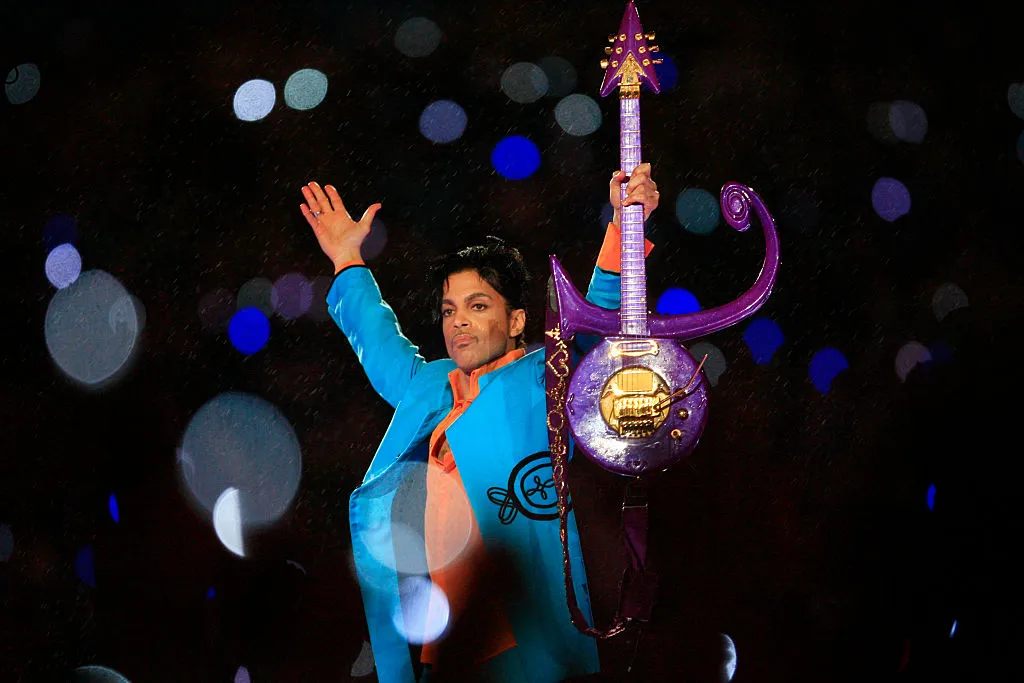
According to Whittier Daily News, Patrick Baltzell also claimed that Prince wanted big speaker towers all the way around his stage. It isn't hard to believe that one of the most highly regarded musicians in history would be particular about his sound.
The NFL wouldn't approve the speaker towers idea on account of it taking too much time to set up-- remember, they only have six minutes. Prince compromised by saying that their little carts had to get 105 decibels up to the highest seats.
The Rolling Stones Wanted Everything Live
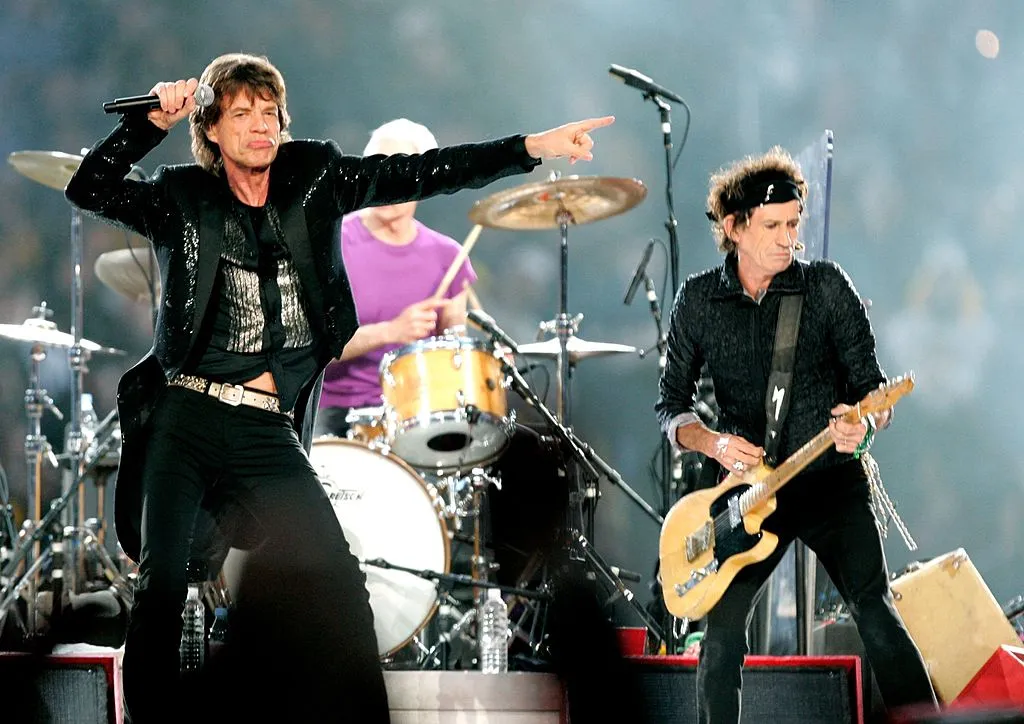
In true rockstar fashion, The Rolling Stones refused to have any backing tracks. In other words, they wanted every sound coming off of that stage to be live. Where some Super Bowl artists would even sing live, these rockers didn't want so much as a backing vocal recorded.
Considering the culture surrounding rock music, it makes sense that the rock legends would laugh at the idea of doing a concert that wasn't completely live. After all, they've been doing this since before many of today's artists were even born.
Beyonce's 2013 Performance Was Off The Grid
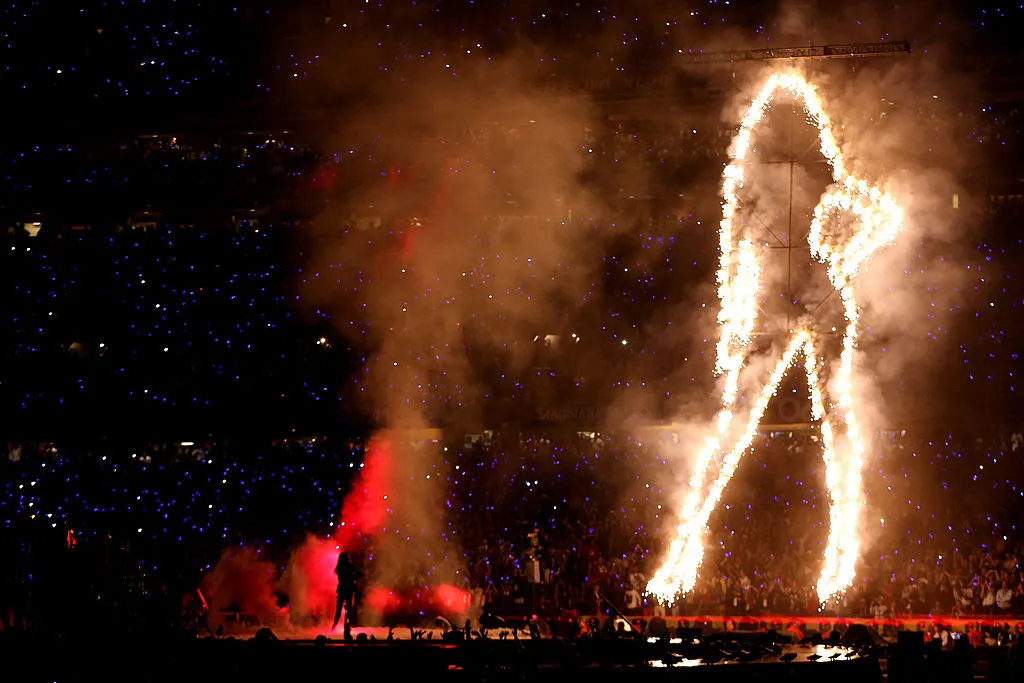
Shortly after Beyonce's incredible performance at the Super Bowl XLVII, a power outage delayed the game by about thirty minutes. Some viewers speculated that it was the halftime performance that caused the power to go out.
Considering how lit up the show was, this theory didn't seem far-reaching. Patrick Baltzell squashed this rumor, telling Whittier Daily News, "We were aware of the power problems and a day before got generators, so the show was off the grid." These guys think of everything beforehand.
Janet Jackson's Wardrobe Malfunction Masked A Bigger Problem
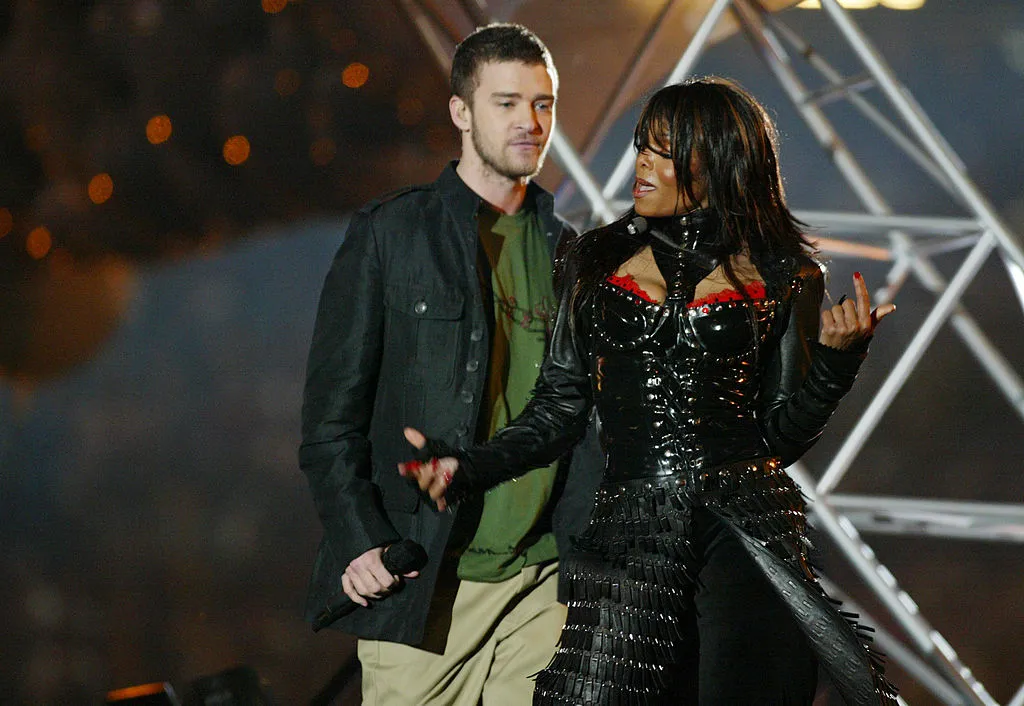
Super Bowl XXXVIII presented Patrick Baltzell with a major issue. The stadium it took place in was known for having an extremely muffled sound. Even worse, his backup speakers couldn't be used because they would block some of the fans' views of the stadium video screens.
Baltzell said of the disaster, "You couldn't understand a single lyric." Just as he was envisioning the end of his career, Justin Timberlake accidentally tore Janet Jackson's outfit. Needless to say, everyone immediately forgot about the sound issues.
The Performers Do Not Get Paid
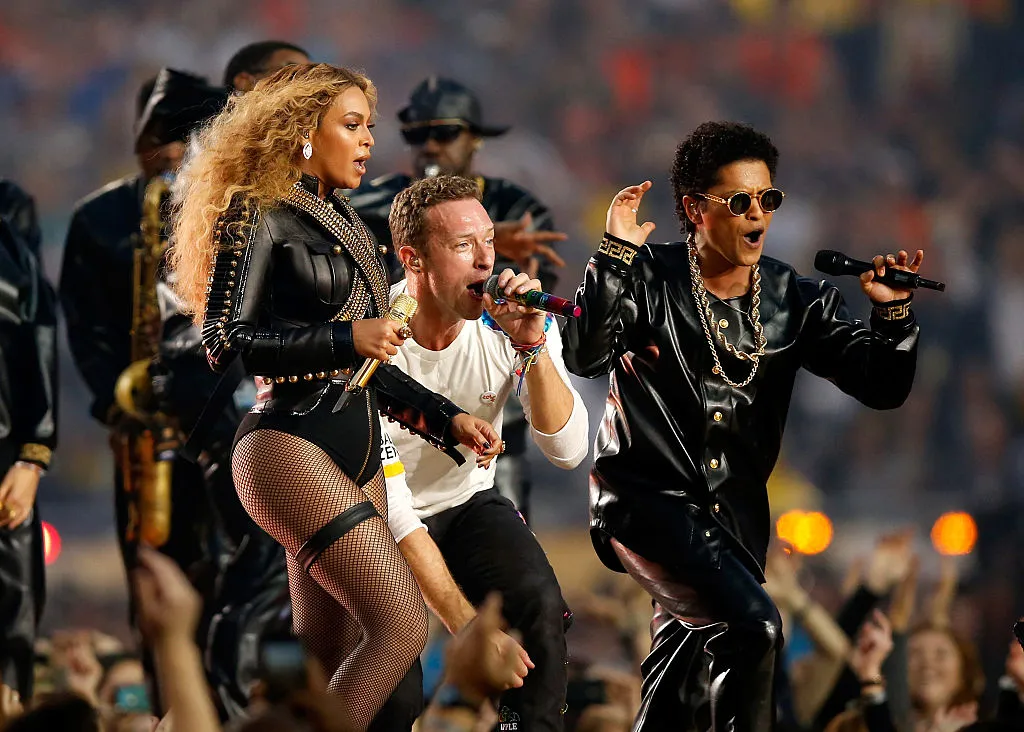
In 2016, Forbes quoted NFL spokesperson Joanna Hunter as saying, "We do not pay the artists," referring to the halftime show. Considering that many of the performers are used to million-dollar earnings, it's a wonder that Super Bowl is so sought after by artists.
There are two main reasons why this may be. For one, the NFL covers the production costs of the performance, which can be as much as $10 million. For two, the Super Bowl is a great advertising platform; Forbes reports that multiple artists have experienced increased album sales or climbed the Billboards charts after their halftime performance.
Michael Jackson Was The Only Artist Paid By The Super Bowl
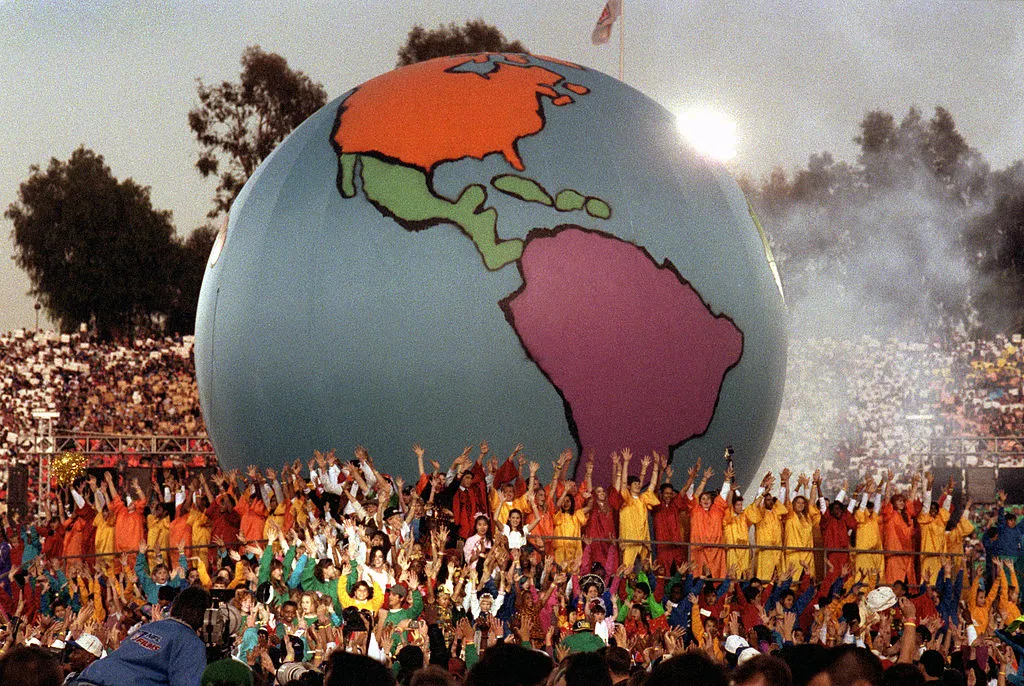
There was one artist who managed to negotiate a performance fee from the NFL. Of course, we're talking about the king of pop. He wasn't paid in the traditional sense. Rather, he was granted a $1 million contribution to his Heal The World foundation.
Of course, this agreement shed a favorable light on the NFL, especially after Michael's heartwarming performance of "Heal the World" during the Super Bowl XXVII halftime show. If ever a deal was impossible to turn down, it was that one.
The Halftime Show Used To Be Weak
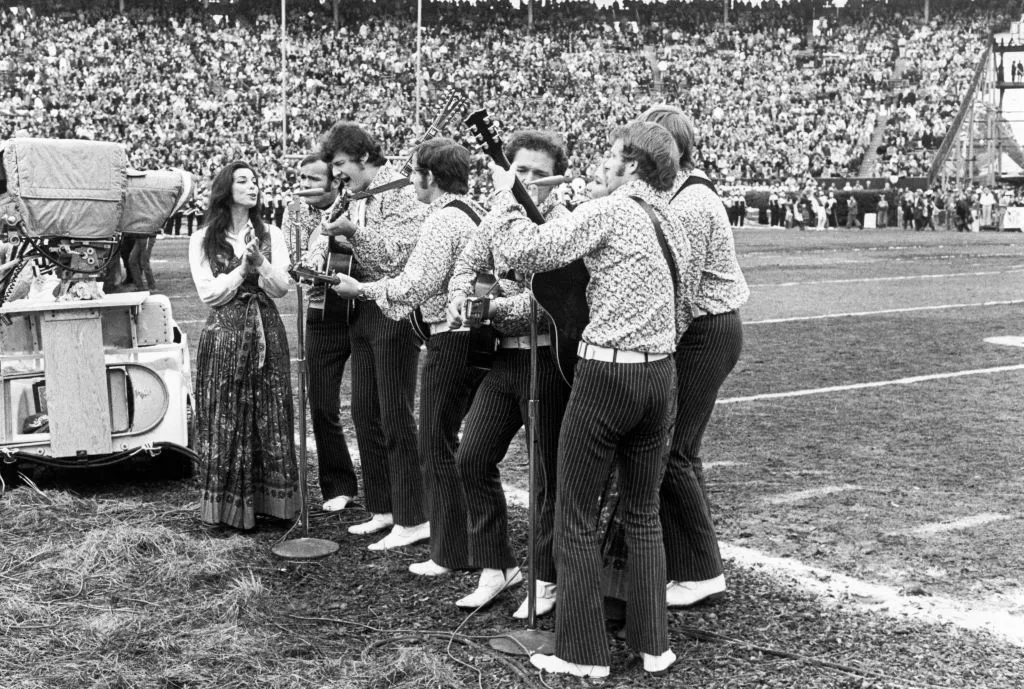
These days, the Super Bowl halftime show is almost as talked about as the game itself. Those who don't normally watch sports will gather round to see the halftime performers. This wasn't always the case, though.
For the first couple of decades of Super Bowl history, the half time shows were weak by today's standards. If you don't believe us, just look at this photo of the folk group New Christy Minstrels performing at Super Bowl IV's halftime show.
The New Kids On The Block Got Snubbed During The 1991 Super Bowl
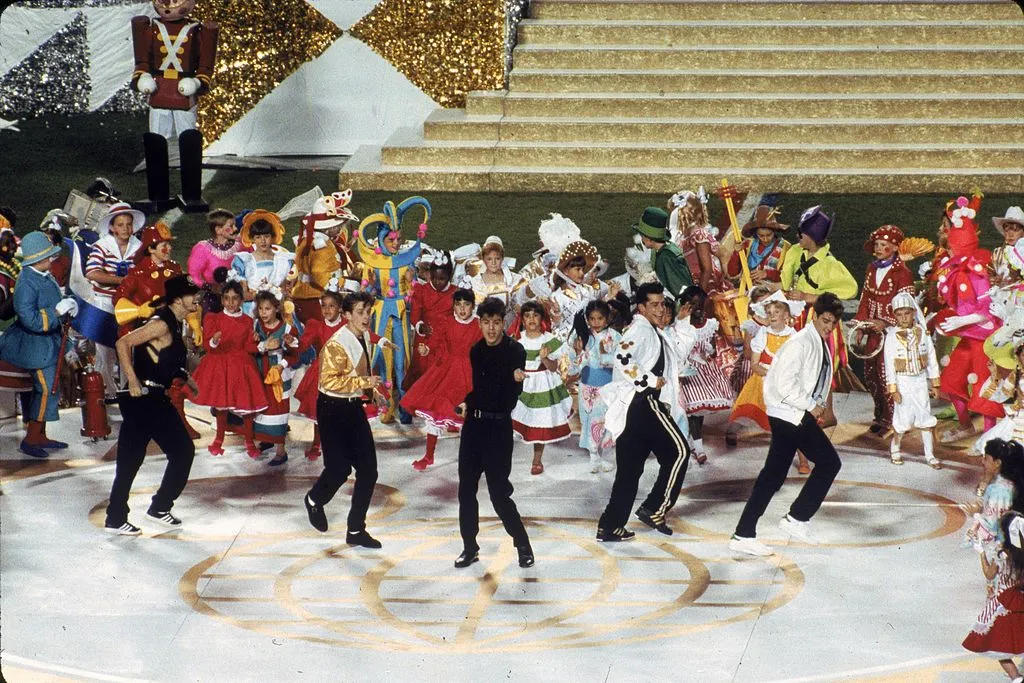
One of the earlier halftime performances to show promise occurred during Super Bowl XXV. It was 1991 and New Kids On The Block was on top of the world. Not only did the group perform at the halftime show, but they featured children of military families in the performance, too.
Being that the Gulf War wouldn't end for another month, the performance was timely and impactful-- or it would have been if anyone saw it. For whatever reason, they didn't air the halftime performance until after the game ended. Talk about ruining a good thing.
Michael Jackson Was Chosen To Turn The Halftime Show Around
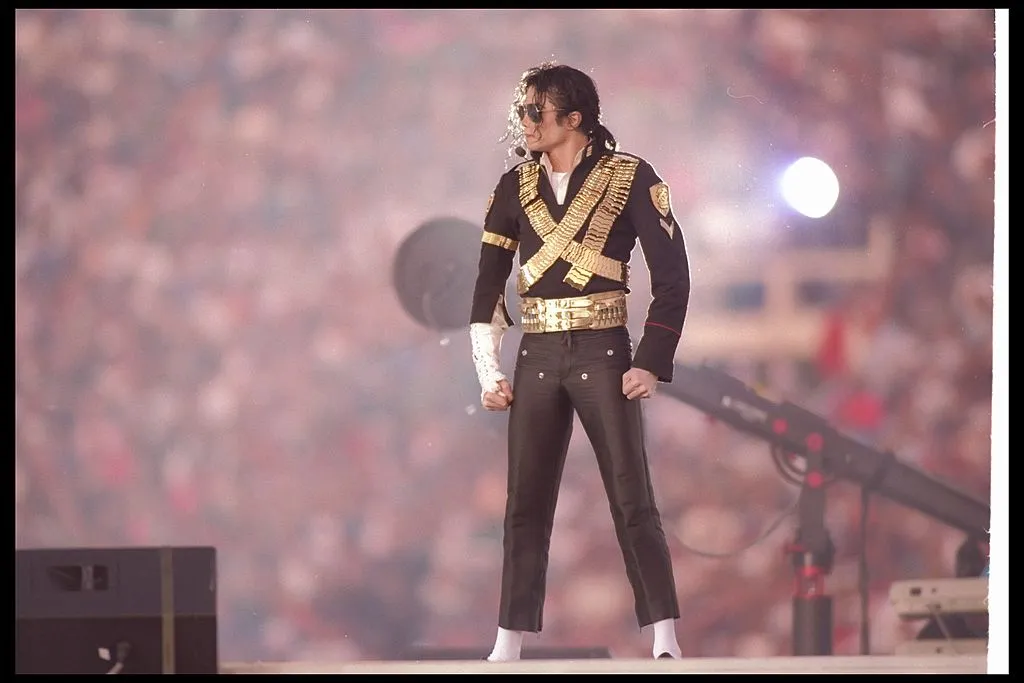
The early '90s saw the rise of Super Bowl halftime counter-programming. In other words, television stations starting airing their best shows during the halftime performance. The hope was that people would get bored and temporarily stray from the Super Bowl channel to visit a different station.
One successful example was In Living Color, which landed almost 30 million views during the 1992 Super Bowl halftime show, according to The LA Times. The following year, Michael Jackson took the stage during the halftime show, and no one changed the channel.
One Halftime Show Backfired
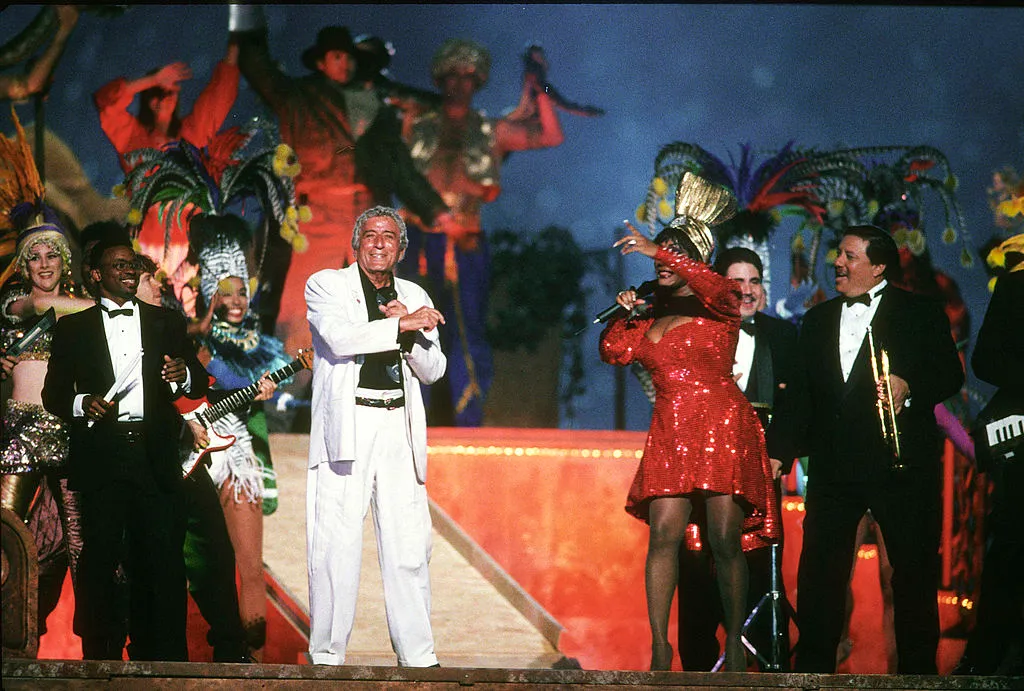
It became a challenge to outdo Michael Jackson's halftime performance of 1993. In a desperate attempt to come up with something intriguing, organizers of the show put together a show within a show. Indiana Jones would "rescue" the Super Bowl trophy to the performances of Patti LaBelle and Tony Bennett.
Though they had the best of intentions, the show was a flop. We can't decide which part of it was more cringe-worthy: Patti's failed attempt to lip-sync, or the beyond cheesy fighting scenes. At the very least, the performance is a testament to how far the halftime show has come.









